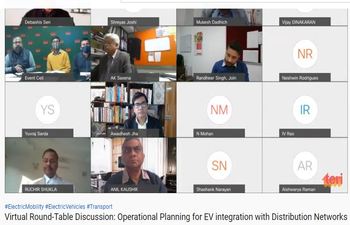
Certain Investigations on Charging Control of Plug in Hybrid Electric Vehicle
Publication Year: 2019
Author(s): Gnana vanitha LS
Abstract:
In this research Coordinated charging of Plug in Hybrid Electric newlineVehicle (PHEV) in a grid and efficient battery charging controller are analyzed using various algorithms. The PHEV has become passion today for its less emission of gasoline and reduced fuel price since the transportation segment is a vital consumer of fossil fuel and discharges a high quantity of pollution. PHEVs that could make a trip up to 60 miles on a battery charge on electric energy stored in their batteries without a recharge could diminish CO2 emissions by 50% and petroleum utilization by over 75%. The main aspect differentiating the PHEV from the Hybrid Electric Vehicle (HEV) is the ability to plug the PHEV into the grid and charge the battery pack using grid electricity. A key factor to understand is that the power demand on the grid from charging PHEVs will be a function of the voltage and amperage of the connection to the grid. The capacity of the battery will then determine the length of time it will take to recharge the battery, gives the connection strength. Unexpected PHEV load in a grid increases the load to the grid and may cause a voltage drop in a grid. Magnitude of voltage in a grid is the main parameter in deciding the quality of power delivered to the consumer. Coordinated charging in the grid is required to charge the PHEV in order to maintain the quality of electricity from the grid. The coordination of the charging is possible to control remotely in order to reallocate the demand to periods of lower load expenditure and thus eliminating higher peaks in consumption of electricity. The coordinated charging of PHEV is proposed using a dynamic programming method to balance the load demand in the grid.
Country: India
Rights: Anna University
URL:
https://shodhganga.inflibnet.ac.in/handle/10603/296810
Theme: Charging Infrastructure | Subtheme: Commercial and Institutional charging
Related Documents
Reports
Security Architecture for Electric Vehicle Charging Infrastructure
Published Year: 2019
Abstract:
This document provides a recommended security architecture for EV charging infrastructures. It... Read More
Reports
Charging up India’s Electric Vehicles
Published Year: 2019
Abstract:
This study aims to provide a vision for the future of EV charging infrastructure deployment an... Read More
Opinions/Videos

Abstract:
Electric mobility has remained an important priority for the NCT of Delhi as is evident throug... Read More



